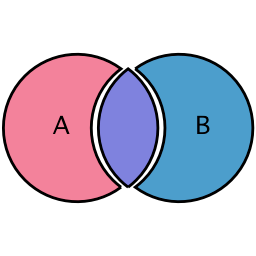
In this study, we used 1,25(OH) 2D 3 to explore whether it can inhibit the PEDV-induced inflammatory response and the underlying mechanism in vitro. It is known that 1,25(OH) 2D 3 is the active metabolite of VD and is widely used in vitro studies. Therefore, it is possible that 25(OH)D 3 can alleviate the PEDV-induced intestinal inflammatory status and injury of piglets by suppressing the proinflammatory response however, the underlying mechanism is not clear. Our previous study demonstrated that 25(OH)D 3 inhibits inflammatory cytokine expression induced by PEDV infection in the jejunal mucosa of weaned pigs. This indicates that VD can inhibit virus-induced inflammation independently of viral clearance. In addition, VD inhibits the inflammatory response to respiratory syncytial virus (RSV) infection without jeopardizing viral clearance. VD also has anti-inflammatory effects, which can inhibit the inflammatory cytokine expression induced by various viral infections. Previous reports have shown that VD has broad-spectrum antiviral effects, such as against HIV, hepatitis C virus, and dengue virus infection. It has long been thought that vitamin D (VD) not only regulates calcium and phosphorus absorption, but also plays important roles in immune regulation. Therefore, alleviation of inflammatory cytokine expression will be conducive to the prevention of intestinal injury induced by PEDV. The production of proinflammatory cytokines is an important part of the host innate immunity however, an excessive rise in proinflammatory cytokines or uncontrolled inflammation would be detrimental to the intestinal structure and function.
This evidence indicates that PEDV infection can lead to severe inflammatory responses. PEDV not only induced an inflammatory response in porcine intestinal epithelial cells, but also increased IL-1β, IL-6, IL-8, and TNF-α expression in Vero cells.

In addition, NF-κB activation was found due to PEDV infection in porcine small intestinal epithelial cells. In vivo, PEDV infection also stimulated proinflammatory cytokine responses. reported that PEDV infection significantly enhanced INF-α, IFN-β, TNF-α, and IL-6 expression in IPEC-J2 cells. Intestinal damage caused by PEDV infection is often accompanied by increasing inflammatory cytokine expression and secretion. PEDV infects and replicates in small intestinal enterocytes and causes impaired intestinal morphology and disordered barrier function. Porcine epidemic diarrhea virus (PEDV) infection causes watery diarrhea, vomiting, anorexia, and high mortality in suckling piglets, which leads to serious economic losses in many pig-producing countries. These results suggest that vitamin D could contribute to inhibiting intestinal inflammation and alleviating intestinal damage in PEDV-infected piglets, which offers new approaches for the development of nutritional strategies to prevent PEDV infection in piglets. Together, our results provide powerful evidence that 1,25(OH) 2D 3 could alleviate PEDV-induced inflammation by regulating the NF-κB and JAK/STAT signaling pathways through VDR. Meanwhile, the overexpression of VDR significantly downregulated IL-19 and CCL20 expression induced by PEDV infection. In addition, when the vitamin D receptor (VDR) was silenced by siRNA, the anti-inflammatory effect of 1,25(OH) 2D 3 was inhibited. Although 1,25(OH) 2D 3 suppressed the JAK/STAT signal pathway and antiviral gene expression, it had no significant effects on PEDV replication and IFN-α-induced antiviral effects.

In addition, 1,25(OH) 2D 3 supplementation inhibited ISG15 and MxA expression induced by PEDV. IκBα and SOCS3, NF-κB, and STAT inhibitor respectively, were increased by 1,25(OH) 2D 3 supplementation upon PEDV infection.

Meanwhile, we also found that 1,25(OH) 2D 3 reduced p-NF-κB, p-STAT1, and p-STAT3 protein levels induced by PEDV at 24 h post-infection. Interestingly, 1,25(OH) 2D 3 supplementation obviously inhibited IL-19 and CCL20 expression induced by PEDV. The results showed that interleukin 19 ( IL-19) and C-C motif chemokine ligand 20 ( CCL20) gene expression were enhanced with the increase in PEDV infection time in IPEC-J2 cells. We used transcriptome analysis, gene and protein expression, RNA interference and overexpression, and other techniques to study the anti-inflammatory effects of 1,25(OH) 2D 3 on PEDV infection in IPEC-J2 cells. It is known that 1,25-dihydroxyvitamin D 3 (1,25(OH) 2D 3) has potent anti-inflammatory activity, but it is unknown whether 1,25(OH) 2D 3 can inhibit the PEDV-induced inflammatory response and the underlying mechanism. The pathogenesis of PEDV infection is related to intestinal inflammation. Porcine epidemic diarrhea virus (PEDV) infection causes watery diarrhea and vomiting in piglets.


 0 kommentar(er)
0 kommentar(er)
